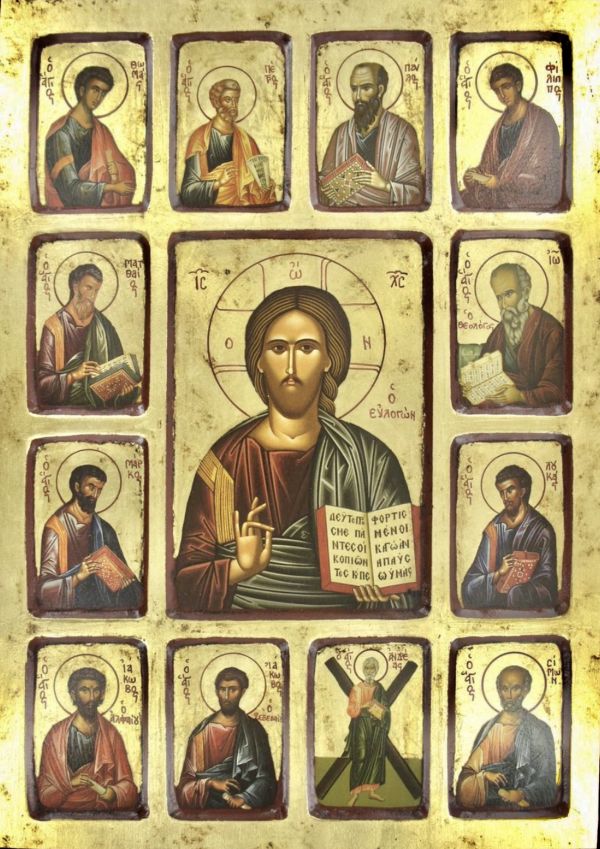Emergency large, through small Name
(Mt 10:1-7)
None of the apostles was worthy of the Call; yet he is called upon, and can receive his Mandate - as if he were already perfect!
Most of them have typical names of Judaism, even of the patriarchs’ time - which indicates a cultural and spiritual extraction rooted more in religion than in Faith... not easy to manage.
Peter was eager to step forward, but also often receding (backtracking) until he became for Jesus a «satàn» [in the culture of the ancient East, an official of the great sovereign, sent to be a controller and whistleblower - practically an accuser]. James of Zebedee and John were brothers, heated fundamentalists, and hysterically they wanted the Master only for them. Philip did not appear to be a very practical type, neither quick or trained to grasp the things of God. Andrew seems instead to be doing well: inclusive person. Bartholomew was probably open but perplexed, because the Messiah did not correspond much to him. Thomas was a little inside and a little outside. Matthew a collaborationist, avid accomplice of the oppressive system. Simon the Canaanite a hothead. Judas Iscariot one who destroys himself by trusting the old spiritual guides, imbued with a nationalist ideology, of private interest, opportunism and power. Two others (James son of Alpheus and Judas Thaddeus) perhaps simple disciples of no great importance or initiative.
But the Kingdom is «near» [v.7: «it has become close»]: God is in our history - it was already experienced in the early days, in first community of sons.
In ancient devotion, the idea of a distant God produced separations, pyramidal hierarchies, cultivation of inner circle interests.
The idea of an Eternal leader and avenger left prolific a priestly class that instead of reconciling and integrating people, neglected and abandoned the irrelevant persons.
The fact of believing in a divine Presence linked to material abundance dulled minds and the ability to read the Redemption.
[The idea of advantage and disadvantage, prosperity and scarcity, always originate in us or in the conventional mentality; from opinions].
Therefore, it’s crucial to mature first, wherever we live.
Not infrequently there are unnoble reasons to want to reach everyone, run everywhere, spread, increase and do it immediately.
We say so… not to distinguish the moment of the Call from that of Sending.
It is the ‘way of intimate’ that really penetrates the space of the suburbs. In fact, only those who love strength prefer to start from what is very far from themselves.
The only way to peer far is to stick to the reason of things, a principle that we can know if we are not misled by dispersion.
By understanding the nature of themselves and creatures, everyone is inspired to complete.
In short, the Road to Heaven is intertwined with the Way of the Person, not with the journey of excellence; not with the path on the models’ base - or we will be overfishers common and cheesy.
The Kingdom has become ‘close’ and by Name since the beginning (vv.2-4): there is no more incisive authentic and healing Mission.
[Wednesday 14th wk. in O.T. July 9, 2025]












